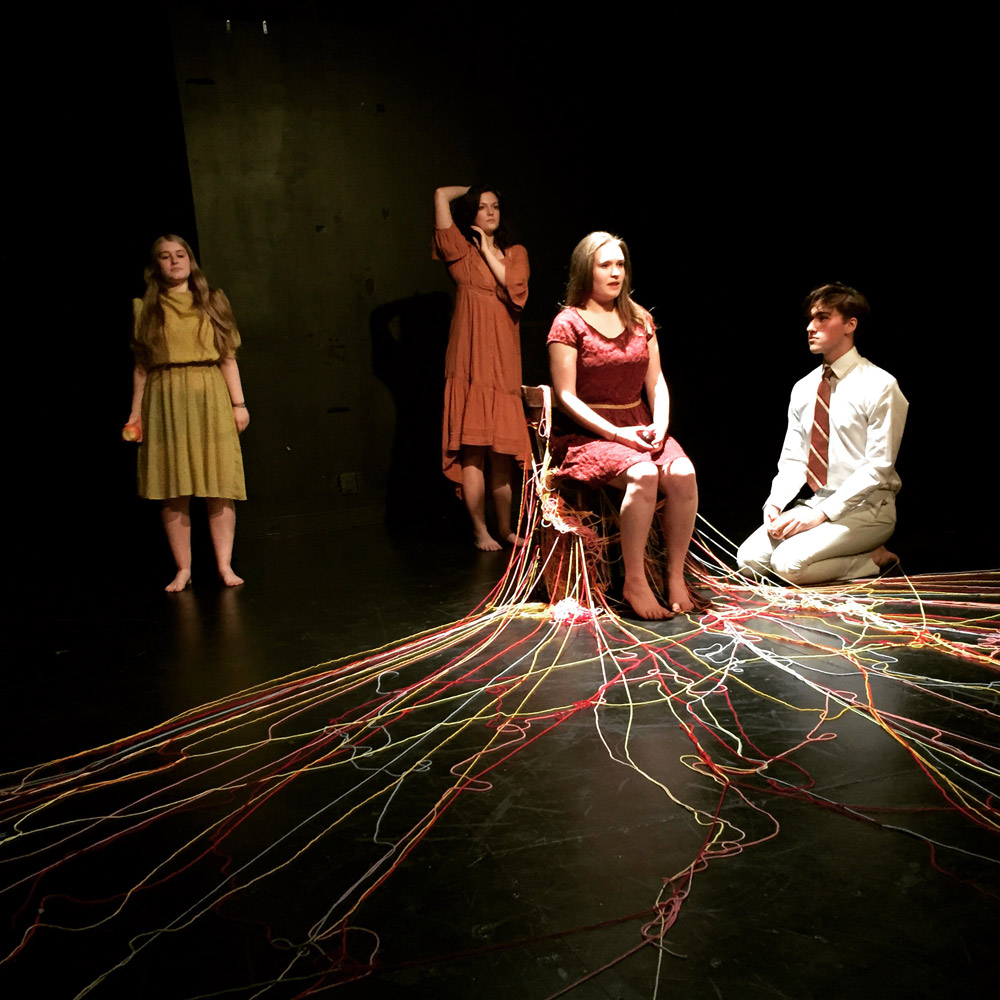
Playwrights Horizons Theatre School
The Playwrights Horizons Theater School training curriculum is designed to give undergraduate students a strong foundation for a diverse range of engagements with the contemporary professional field of theater and performance. Toward that end, all classes invest in the following overall training goals:
Strong rooting in one’s unique identity and potential contributions to the art form while also understanding the context and impact of oneself inside a larger community and world.
An extensive and diverse toolbox that enables a responsive, versatile, and sustainable art practice in a wide variety of projects and contexts.
A deep understanding of the symbiotic relationship between process and outcome, and the ability to design process strategies specific to the project and context at hand.
The ability to learn and grow independently once out of school, both through ongoing artistic practice and through a larger engagement with cultural and civic life.
The tools to move through both professional and civic spheres with personal agency and critical reflection.
Primary Training
The 1st Year curriculum focuses on developing an awareness of and relationship to oneself as a theater artist, while establishing a foundational understanding of theater’s diverse potentials as an artistic medium. All classes in the 1st Year curriculum are required for all students. Overall learning outcomes for the 1st Year training include:
Awareness of the self and its contours as a creative instrument and resource.
Understanding of each theatrical discipline and its role in the practice of theater making.
Common vocabulary for discussing theater works and theater making processes.
Foundational tools for practicing catalytic and ethical collaboration.
The 2nd Year curriculum builds on the foundations of 1st Year by introducing more advanced skills and techniques, while also complicating students’ understanding of their artistic identities through engagement with a diverse range of projects, ideas, texts, spaces, materials, contexts, and collaborations. Students in 2nd Year may choose from a selection of classes to begin shaping their focus of study across particular theater disciplines. Overall learning outcomes for the 2nd Year training include:
An emerging ability to identify and pursue independent learning goals.
The ability to apply skills and learning in practical project opportunities.
More extensive collaboration strategies developed through curricular and extra-curricular projects.
Tools for text analysis through multiple disciplinary lenses.
A deeper understanding of one’s individual strengths, challenges, and needs within a creative process.
Advanced Training
Our Advanced Training program creates opportunities for students to develop their individualized creative practices through semester-long project work and advanced skills classes. This curriculum is meant to be a bridge between their undergraduate training and their independent careers, a richly mentored framework that allows them to explore, risk, fail, learn, and gain tools to function independently in the professional field.
Students choose to either lead creative projects of their own determination or perform in the cast of a professionally-led production. PHTS produces between 20 and 30 advanced projects each semester, including full productions of established scripts, readings of new plays, devised works, performance installations, dance theater productions, digital and interactive media performances, amongst others. Students may also decide to build projects that are not intended to meet audiences, such as developing new dramaturgical papers or rehearsal methodologies.
Each semester centers on the project or production experience with a few required support classes, alongside an array of advanced electives across all theatrical disciplines that rotate each semester. This model allows each student to self-curate a curriculum that most effectively supports their individual training goals in their final semesters of school. A student could enroll in our Advanced Training program once, or up to all 4 semesters of their final two years, exploring different projects and electives each term.
This model supports multi- and inter-disciplinary theater makers while simultaneously nurturing artists who want to develop a singular disciplinary focus. It creates an environment where each student is building their own individualized practice in conversation with a diverse peer community of fellow practitioners, developing key skills for functioning within the larger, multi-faceted cultural community they will graduate into. The flexibility of this model also allows students to study with us part-time as needed, enrolling for partial credit as Independent Curriculum students, who can gain project experience without the additional electives, or take elective classes without leading or participating in a project.
Overall learning outcomes for the Advanced Training include:
Gain experience moving through a full project process.
Build confidence in experimenting with new methodologies within their own creative process.
Explore a range of topic-specific, deep dive explorations of advanced skills sets through elective classes.
Engage in dialogue with peers, mentors, and professionals about building a sustainable arts practice.
Develop a project-making practice rooted in individual creative and learning goals.